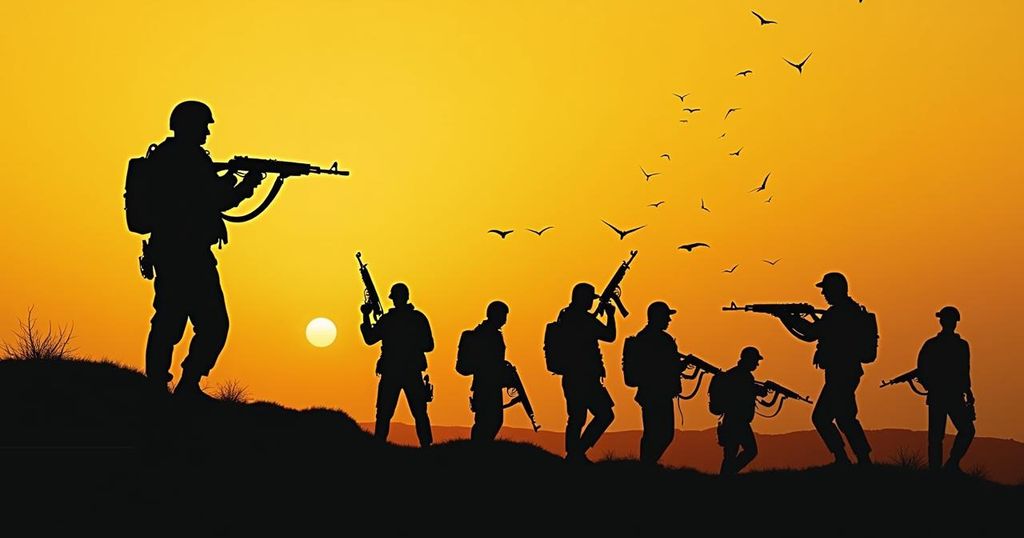Iran’s Crucial Support for Hezbollah: A Picture of Crisis and Regional Reassessment
The article discusses the current crisis faced by Hezbollah in Lebanon due to intensified military actions by Israel. Iranian Foreign Minister Abbas Araghchi’s visit to Lebanon and Syria indicated Iran’s commitment to support Hezbollah, yet reactions from Lebanese citizens reveal widespread discontent towards Iranian influence. This situation emphasizes a growing opportunity among regional powers to rethink Lebanon’s future without Hezbollah as a pivotal force.
In recent weeks, the geopolitical dynamics in Lebanon have undergone significant shifts, as Israel has intensified its military operations against Hezbollah, a pivotal Iranian proxy force in the region. As the Israeli Defense Forces (IDF) systematically target Hezbollah’s leadership, the Iranian government is under pressure to take decisive action to support its key ally. However, there exists an emerging narrative within the Middle Eastern power dynamics, as various nations start to reconsider the future of Lebanon in a post-Hezbollah landscape. Iran’s Foreign Minister, Abbas Araghchi, made a noteworthy visit to Beirut on Friday, followed by a trip to Damascus on Saturday. During his visit, he offered assurances of support to Lebanon, stating, “We will stand with Lebanon.” Such declarations, however, have met with skepticism from Lebanese citizens, who have expressed their displeasure and frustration through social media channels, highlighting a growing sentiment that Iran’s involvement has exacerbated Lebanon’s crises. One individual articulated this sentiment by asserting, “Iran is sleeping quietly and Lebanon is paying the price.” Another expressed indignation by stating, “You have robbed the country and now you are coming to stand with us.” This unfolding situation highlights the complex interplay of regional politics, with Lebanon at the forefront as various stakeholders navigate the fragile balance of power. As Iranian support remains crucial for Hezbollah, the shifting tides may present an opportunity for Lebanon to re-examine its political alliances and national sovereignty in the face of external influences.
The current situation in Lebanon is rooted in a long-standing conflict that has seen Hezbollah emerge as a dominant force within the country’s political and military landscape, primarily backed by Iran. With the Israeli military’s recent actions, Hezbollah faces unprecedented challenges that could significantly alter its operational capabilities. Iran’s involvement in Lebanon has historically been framed as a means of extending its influence, but this has also led to significant backlash from the Lebanese populace, who have borne the consequences of regional conflicts. The idea of a ‘day after’ in Lebanon signifies a potential shift towards re-evaluating Hezbollah’s role and Iran’s presence in the nation as local and regional powers seek stability and sovereignty.
In conclusion, the ongoing challenges faced by Hezbollah amid intensified Israeli military actions are prompting a reevaluation of regional dynamics in Lebanon. Iran’s pledge of support, articulated by Foreign Minister Abbas Araghchi, has encountered skepticism from the Lebanese population, reflecting broader concerns regarding the implications of Iranian involvement. As Lebanon contemplates its future in the wake of these events, the potential for a post-Hezbollah landscape raises critical questions about national sovereignty and the influence of foreign powers in the region.
Original Source: www.haaretz.com




Post Comment